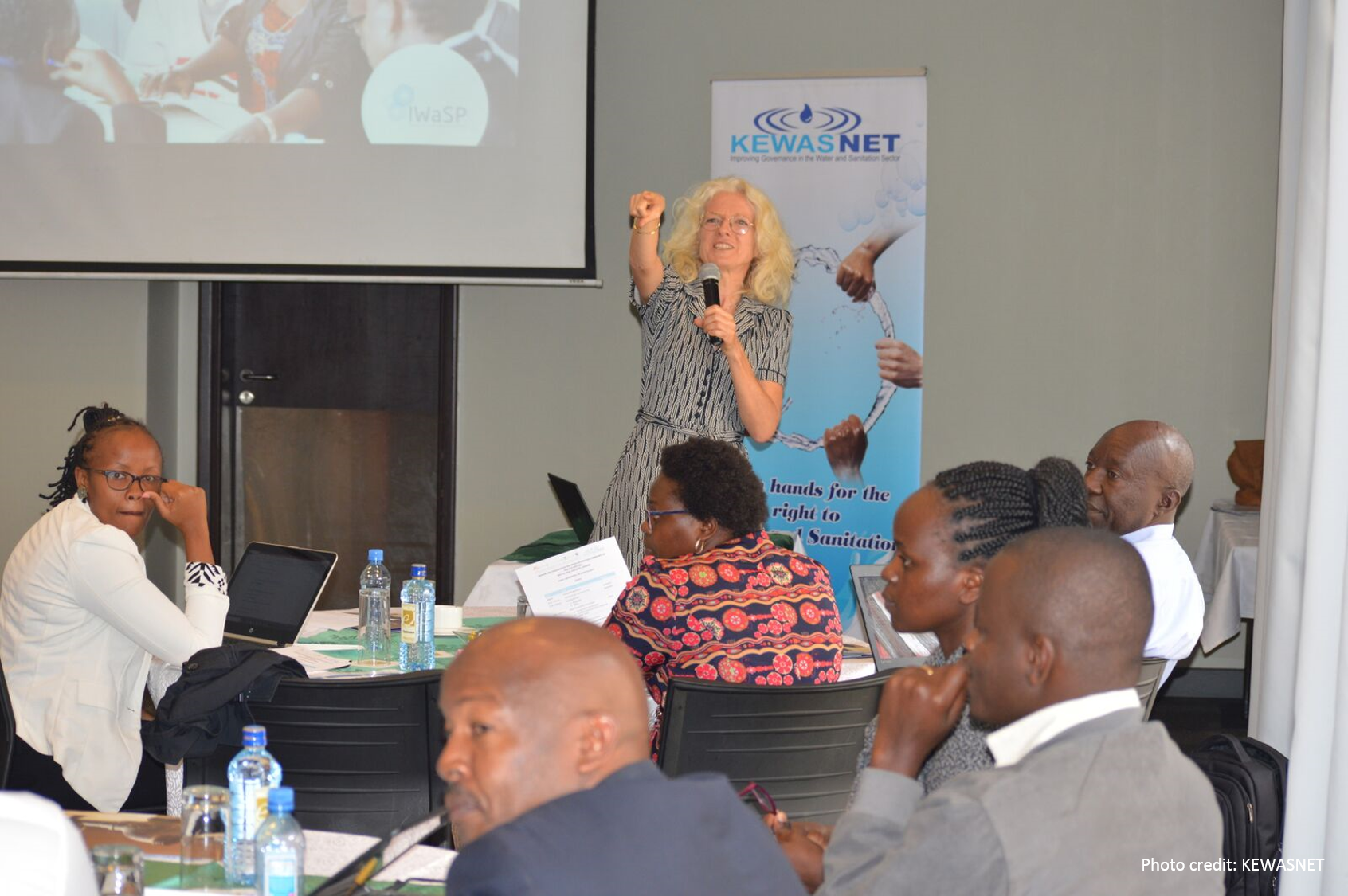
Human communities living in remote and rich biodiversity areas are often impoverished with little to no access to improved water sources and sanitation facilities. The sustainability of freshwater resources and safe drinking water projects depend on the appropriate conservation of the broader watershed. Freshwater conservation and Water, Sanitation, and Hygiene (WASH) activities integrate livelihood objectives with watershed management approaches, and link rural and urban water supply and sanitation. These linkages reduce the impact of degradation on the watershed and protect the goods and services that the ecosystem provides.
In many developing and emerging economies, water-related risks, such as floods, shortages and pollution, are creating a rising tide of increasing business risks for companies, threatening their profits, supply chains, investments and reputations. These risks are also having massive impacts on communities and governments, threatening broader socio-economic development.
New partnerships among governments, companies and communities must be forged urgently to address these threats effectively. Multi-sectoral actors need to effectively work together to address water-related risks. This is built on the understanding that the complex and multiple causes of threats to water security cannot be managed by any single actor and that joint efforts are necessary.
Generally, partnerships are formed on the watershed level and seek to include water users, water managers and water influencers. Therefore, freshwater conservation and WASH practitioners need to understand how to build partnerships at the watershed level to tackle shared water risks and threats facing communities and businesses to ensure water is secured for social and economic development.
Recognizing the need to better link freshwater conservation and WASH initiatives, the Africa Biodiversity Collaborative Group’s (ABCG) Freshwater Conservation (FW) and WASH working group initiated a community of practice (CoP) with the aim of establishing an integrated learning and knowledge sharing platform between FW-WASH practitioners in a supportive and collaborative environment.
On May 15, 2018 the Kenya Water and Sanitation Civil Society Network (KEWASNET) in partnership with ABCG organised a community of practice meeting that focused on sharing knowledge and experiences in building partnerships for water security. Practitioners involved in formulating multi-stakeholder partnerships shared their knowledge and practical experiences on: relevant tools for formulating multi-stakeholder partnerships; ensuring proper monitoring and communication within the partnership; examples of innovative financing models for multi-stakeholder partnerships; and private sector engagement in partnerships.
Partnerships are important in establishing rules and setting up a monitoring system that facilitates the sustainable use of a finite resource like water. To be successful, partnerships should be acknowledged by the authority such as the government. They also need to be established under well-articulated structures such as the water risk and action framework. The water risk and action framework is a methodology used to structure and harmonize the complicated issue of forming partnerships. This framework ensures that an in-depth analysis of all pertinent issues during partnership creation and execution.
Read more about the event in the workshop report here: Partnerships for Water Security: Wash Community of Practice Meeting Report


canadian drugs pharmacy
buy prescriptions online
mexican pharmacies
canadian online pharmacy